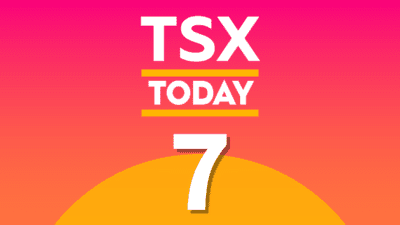As Canada’s interest rate hovers around 5%, it’s natural for investors to feel cautious about the impact on their investment strategies.
Admittedly, the adjustment from the historically low interest rates, particularly those seen during the COVID-19 pandemic, to the current levels has been abrupt.
For years, investors have enjoyed a low-rate environment that buoyed everything from stocks to real estate, making it easy to forget that those conditions were an exception rather than the rule.
It’s clear that the tide has turned, and last year’s bear market in both bonds and stocks was a wake-up call for many. These market conditions forced a lot of investors to reassess their comfort with risk.
The reality is that the low interest rates we saw over the past decade aren’t likely to return soon, and investment strategies must evolve to reflect this new normal.
With that in mind, let’s talk about how to position your investment portfolio for the road ahead. The focus should be on strategies that align with your revised risk tolerance. Here’s how I would approach investing in this changing landscape.
Stocks, bonds, and … cash?
When it comes to diversifying an investment portfolio, most conversations tend to revolve around a mix of stocks and bonds.
Some investors, looking to branch out further, often consider tangible assets like gold, oil futures, or real estate. These assets can sometimes offer protection against inflation or serve as a hedge when markets are volatile.
However, there’s a simpler and much lower-risk option that often gets overlooked: holding cash or cash equivalents. This doesn’t mean stashing physical bills in a safe or under a mattress.
Instead, think about financial instruments like Guaranteed Investment Certificates (GICs), high-interest savings accounts, and money market funds. These are all ways to keep money in a highly liquid and secure form.
In the past, the returns on these instruments were quite low. Now, as a direct consequence of the rising interest rates, many of these cash instruments are offering returns of 5% or higher. This changes the game significantly.
When you consider the risk/reward trade-off, these cash instruments suddenly look very appealing. Why chase a 5% yield in the stock market, which comes with considerable risk, when you can achieve similar rates in a virtually risk-free environment?
For the risk-averse investor or someone looking to park funds while awaiting other investment opportunities, these cash equivalents can be a smart choice in a high-interest-rate environment.
My ETF for holding cash
However, one of the issues with GICs is their lack of liquidity. Once you’ve committed your money to a GIC, it’s locked in until the term ends, which can range from a few months to several years.
During that period, if an excellent investment opportunity presents itself, you can’t readily access that money without potentially incurring penalties.
For those who want the flexibility to move quickly when opportunities arise, there’s a compelling exchange-traded fund (ETF) option available right in your brokerage account: Horizons High Interest Savings ETF (TSX:CASH).
As of November 2, 2023, CASH has an attractive annualized yield of 5.37%. Moreover, it pays out this interest monthly, which can be a neat way to generate a steady stream of income.
What makes CASH particularly appealing is its safety profile. It’s about as secure as ETFs come. The fund invests exclusively in high-interest savings accounts offered by Canadian banks, making it very low risk.








